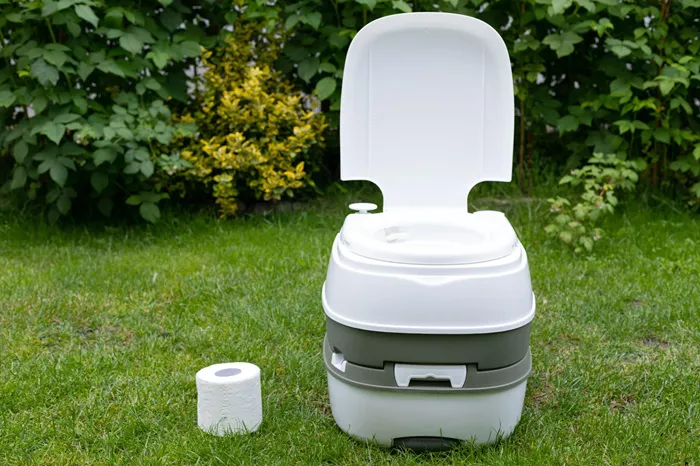Camping toilets are essential for outdoor adventures. They keep your campsite clean and comfortable. Unlike regular toilets, camping toilets are portable and easy to use. But what exactly goes inside them? Let’s find out.
There are different types of camping toilets. Each type needs specific materials to work well. Using the right products makes your camping trip more enjoyable. It also helps protect the environment.
Types of Camping Toilets
Portable Chemical Toilets
These are the most common camping toilets. They have two main parts:
- Upper part: seat and fresh water tank
- Lower part: waste holding tank
You need to add chemicals to the holding tank. These chemicals break down waste and control odors.
Composting Toilets
These toilets separate liquid and solid waste. They use natural processes to break down waste. You often add peat moss or coconut coir to help composting.
Bucket Toilets
Simple and cheap, these are just buckets with toilet seats. You line them with bags or add absorbent materials.
Essential Products for Camping Toilets
Chemical Treatments
These are liquids or powders you add to the holding tank. They do three important jobs:
- Break down waste
- Reduce odors
- Prevent gas buildup
Common chemicals include:
- Formaldehyde-based: strong but harmful to nature
- Enzyme-based: eco-friendly but slower
- Bacterial: natural and safe for the environment
Toilet Paper
Use special camping toilet paper. It breaks down faster than regular paper. This prevents clogs in your system.
Liners and Bags
For bucket toilets, thick plastic bags are necessary. Some bags come with absorbent gels. These make cleanup easier.
Absorbent Materials
For composting toilets, you might use:
- Peat moss
- Coconut coir
- Sawdust
These help control moisture and speed up decomposition.
How to Use These Products
For Chemical Toilets
- Add the right amount of chemical to the empty tank
- Add some water if the instructions say so
- Use the toilet normally
- Empty the tank when it’s about 2/3 full
For Composting Toilets
- Start with a layer of absorbent material
- Add waste
- Cover with more material after each use
- Empty when full
For Bucket Toilets
- Line with a strong bag
- Add absorbent material if needed
- Tie and dispose of properly after use
Environmental Considerations
Always think about nature when choosing products. Avoid harmful chemicals that can damage plants and water. Look for biodegradable options.
Some tips:
- Use enzyme-based treatments
- Choose unbleached toilet paper
- Never dump waste in nature
- Follow local disposal rules
Maintenance Tips
Keep your camping toilet working well with these tips:
- Clean regularly with mild soap
- Rinse thoroughly
- Store dry when not in use
- Check seals and valves often
Common Mistakes to Avoid
Many campers make these errors:
- Using too much chemical
- Putting regular toilet paper in the tank
- Waiting too long to empty
- Not ventilating properly
Conclusion
A well-maintained camping toilet makes your trip better. Choose the right products for your toilet type. Always think about the environment. With proper care, your camping toilet will work well for many adventures.
Remember: different trips may need different setups. Plan ahead and pack the right supplies. Happy camping!
Related topics:
Best Camping Toilets: A Comprehensive Guide
How to Go to the Toilet When Wild Camping: A Comprehensive Guide
What is the Best Camping Trailer? A Comprehensive Guide

